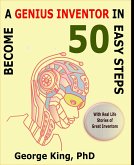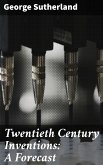In "Stories of Invention, Told by Inventors and their Friends," Edward Everett Hale presents an engaging collection that intersects biography, narrative nonfiction, and history, offering readers an intimate glimpse into the minds of the era's greatest innovators. Hale's skilled prose captures the spirit of American ingenuity during the 19th century, presenting a tapestry of personal anecdotes that highlight the trials, tribulations, and triumphs of inventors. Rooted in the tradition of American Romanticism, the collection not only details the inventions themselves but also delves into the creative processes and emotional landscapes of those behind them, encouraging readers to appreciate the human stories entwined with technological advancement. Edward Everett Hale was not only a prolific writer but also a theologian and social reformer, which undoubtedly informed his perspective on invention. His experiences as a Unitarian minister fostered a deep appreciation for individual agency and social progress. Hale's own adventures and his engagement with various societal issues reflect a profound belief in creativity as a fundamental human trait that fuels change, a belief that resonates throughout this collection. This book is an essential read for anyone fascinated by inventions and the human experiences that drive innovation. Hale's work serves as both an educational resource and an inspiration to aspiring inventors and thinkers, illustrating that the act of invention is deeply personal, shaped by individual stories and the broader context of human history. In this enriched edition, we have carefully created added value for your reading experience: - A succinct Introduction situates the work's timeless appeal and themes. - The Synopsis outlines the central plot, highlighting key developments without spoiling critical twists. - A detailed Historical Context immerses you in the era's events and influences that shaped the writing. - A thorough Analysis dissects symbols, motifs, and character arcs to unearth underlying meanings. - Reflection questions prompt you to engage personally with the work's messages, connecting them to modern life. - Hand-picked Memorable Quotes shine a spotlight on moments of literary brilliance. - Interactive footnotes clarify unusual references, historical allusions, and archaic phrases for an effortless, more informed read.
Dieser Download kann aus rechtlichen Gründen nur mit Rechnungsadresse in A, B, BG, CY, CZ, D, DK, EW, E, FIN, F, GR, H, IRL, I, LT, L, LR, M, NL, PL, P, R, S, SLO, SK ausgeliefert werden.









